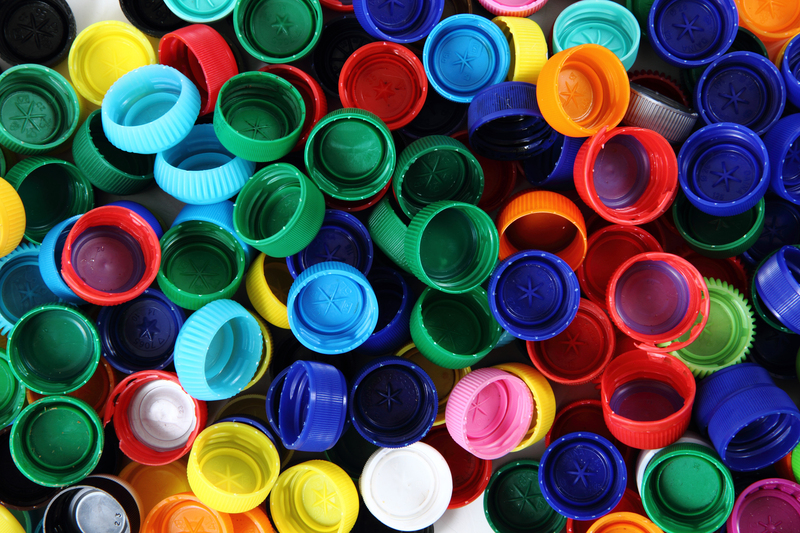From Trash to Treasure: School Recycling Transformation
In today's world, where environmental concerns rise to the forefront of societal priorities, the journey from trash to treasure is increasingly regarded as a crucial educational pursuit. School recycling transformation programs play a pivotal role in shaping young minds, imparting not only knowledge but actionable skills to create a sustainable future. If you're looking for comprehensive insights into how schools can transform waste management practices, renew resources, and foster environmental stewardship, you've come to the right place.

Why School Recycling Matters: The Foundation of Sustainable Education
Educational institutions are more than just venues for academic excellence--they are core influencers for societal change. By embedding robust school recycling initiatives, schools can:
- Reduce waste destined for landfills
- Conserve natural resources through re-use and recycling
- Promote environmental awareness among students and staff
- Build habits that extend into households and communities
Students who learn to recycle at school often become lifelong advocates for sustainability, influencing behaviors well beyond the classroom.
The Challenges Schools Face with Waste Management
Converting trash to treasure within a school setting isn't without hurdles. Common obstacles include:
- Lack of funding for recycling infrastructure
- Insufficient knowledge or guidance about recycling streams
- Limited staff time and resources to manage waste collection
- Low student engagement or awareness
- Inadequate partnerships with local recycling facilities
Overcoming these challenges demands a collaborative, creative approach--but the rewards are well worth the effort.
School Recycling Transformation: Step-by-Step Guide
Every successful school recycling transformation program follows a strategic process. Here's a comprehensive step-by-step guide that any school (elementary, middle, or high school) can tailor to its unique needs:
1. Assemble a Green Team
Start with a group of dedicated individuals: students, teachers, parents, and staff. This Green Team will lead research, planning, and execution. Encourage student leadership--their enthusiasm and peer networks can drive widespread participation.
2. Conduct a Waste Audit
Understanding what's in your school's trash is vital. A waste audit quantifies how much and what types of waste are being produced. It answers questions such as:
- How much paper, plastic, or organic waste does the school generate?
- What items are most commonly disposed of, and could they be recycled or repurposed?
Involving students in the audit process fosters hands-on learning and a sense of ownership.
3. Set Clear Recycling Goals
Based on your waste audit results, define specific, measurable objectives. Examples include:
- Diverting 60% of waste from landfill within one year
- Establishing a schoolwide composting program
- Launching a "Zero Waste" lunch initiative
Make sure your goals are ambitious yet achievable, and revisit them regularly to track progress.
4. Choose the Right Recycling Streams
Not all recyclables are created equal. Consider which materials your local recycling facilities accept. Typical school recycling streams include:
- Papers and cardboard
- Plastics (numbered 1-7)
- Aluminum cans and foil
- Food scraps (for composting)
- Electronic waste (e-waste) such as batteries and old devices
Clearly label bins and use bright, easy-to-understand signage and images to reduce contamination.
5. Educate and Motivate Everyone
Continuous education is the backbone of school recycling transformation programs. Methods include:
- Hosting assemblies or workshops on recycling best practices
- Sharing facts and progress via announcements or newsletters
- Displaying posters and infographics around campus
- Organizing recycling challenges or competitions between classes
Recognition--through prizes or certificates--can inspire healthy competition and pride.
6. Incorporate Recycling into Curriculum
Tie lessons on waste reduction and recycling into science, geography, math, or language arts classes. Hands-on activities could include:
- Calculating the school's landfill diversion rate
- Building compost bins and learning about decomposition
- Writing persuasive essays or creating awareness campaigns
This reinforces classroom learning and the larger aims of the recycling initiative.
7. Establish Community Partnerships
Forge relationships with local businesses, government agencies, or environmental nonprofits. Partnerships can provide:
- Recycling pickups and sorting guidance
- Guest speakers for assemblies
- Donated bins, signage, or funding
- Opportunities for students to participate in community clean-ups
Collaboration strengthens your program's sustainability and reach.
8. Monitor, Celebrate, and Adapt
Track metrics such as the amount of waste diverted, participation rates, and reduction in landfill costs. Share successes through:
- School-wide announcements
- A "Green Bulletin Board"
- Celebration events when milestones are met
- Case studies or reports to inspire other schools
Continually assess what's working and adapt your approach to overcome challenges.
Inspiring Case Studies: Schools Leading the Way in Recycling Transformation
Case Study 1: Zero Waste Breakfast Program
A rural elementary school in Oregon shifted from single-use packaging to reusable trays and utensils, paired with comprehensive recycling sorting stations. As a result, landfill waste dropped by over 70% in less than a year. Students presented their journey at a local environmental summit, inspiring other schools to launch similar school recycling transformation projects.
Case Study 2: Student-Led Upcycling Initiative
A high school in Texas empowered an environmental club to collect used plastic bottles and transform them into planters for a rooftop garden. This initiative not only supported recycling but also integrated STEM learning and beautified the campus. The school even sold upcycled planters at community events, raising funds for further environmental projects.
Case Study 3: E-Waste Drive Extravaganza
Recognizing the growing problem of electronic waste, a middle school in New York launched an annual e-waste drive. Students collected old phones, tablets, and batteries from households across the district. In partnership with a certified recycler, the school diverted hundreds of pounds of e-waste from landfills each year--and educated the broader community about responsible disposal.
Creative Ways to Turn Trash into Treasure in Schools
Inspiring creativity is central to sustain a school recycling transformation. Here are some engaging ideas to turn would-be garbage into valued educational resources:
- Art from Waste: Organize "Trash to Art" festivals where students repurpose bottle caps, boxes, and cans into sculptures or murals.
- Eco-Brick Projects: Stuff clean plastics into bottles to create eco-bricks, which can be used for building benches or garden beds.
- Composting Labs: Use cafeteria scraps to generate compost for science experiments and improve the school garden soil.
- Clothing Swaps: Run "uniform exchanges" or clothing drives that redirect gently used attire from landfills to classmates in need.
By reimagining waste as a resource, students gain a new perspective and develop innovation skills with real-world impact.
Technology and Innovation in School Recycling Programs
The devices that connect and educate us can also power school recycling transformation projects. Tech-based approaches might include:
- Recycling Apps: Mobile apps guide students on what materials to recycle, track classroom progress, or issue recycling challenges with virtual rewards.
- Smart Bins: AI-powered waste bins use cameras and sensors to sort recyclables automatically or notify when they're full.
- Digital Education: Interactive online games, videos, and virtual field trips immerse students in global recycling success stories.
Embracing technology not only aids in recycling but also prepares students for a future shaped by innovation and environmental mindfulness.

The Lasting Benefits of School Recycling Transformation
The ripple effects of a school recycling transformation are profound:
- Reduces environmental impact: Less waste sent to the landfill means decreased greenhouse gas emissions and pollution.
- Cultivates responsible citizens: Students learn that their choices matter locally and globally.
- Fosters leadership and teamwork: Collaborative recycling projects build communication and organizational skills.
- Enhances school reputation: Recognized "green" schools attract families and set examples for community change.
- Promotes financial savings: Lower landfill fees and opportunities to sell recyclables support other school initiatives.
Thus, the journey from trash to treasure is not just about managing waste--it's about raising a generation equipped to handle the complex sustainability challenges ahead.
Conclusion: Begin Your School's Transformation Today
Turning trash into treasure in schools demands passion, collaboration, and persistence. Yet, as this guide reveals, even modest efforts--when led with enthusiasm and innovation--can revolutionize campus culture and benefit the planet. Start by forming a Green Team, analyzing your school's waste streams, and building momentum one step at a time.
Every piece of paper sorted, every bottle or can collected, each lesson taught about sustainability is a crucial step towards a cleaner, smarter, and greener future.
Are you ready to embark on a school recycling transformation journey that turns trash to treasure? The world--and the next generation--are counting on it.
Frequently Asked Questions (FAQs): School Recycling Transformation
-
What are simple ways to start a recycling program at my school?
Begin by assembling a small environmental club, conducting a basic waste audit, and introducing labeled recycling bins in common areas. -
How can younger students be encouraged to recycle?
Use gamification, colorful signage, and reward-based competitions to make recycling fun and memorable for children. -
What if my school doesn't have the budget for recycling bins?
Reach out to community organizations or local businesses--it's often possible to secure donated materials or small grants. -
Are there digital resources to help with school recycling transformation?
Yes--many environmental nonprofits offer free lesson plans, digital tracking apps, and toolkits tailored to educational settings.